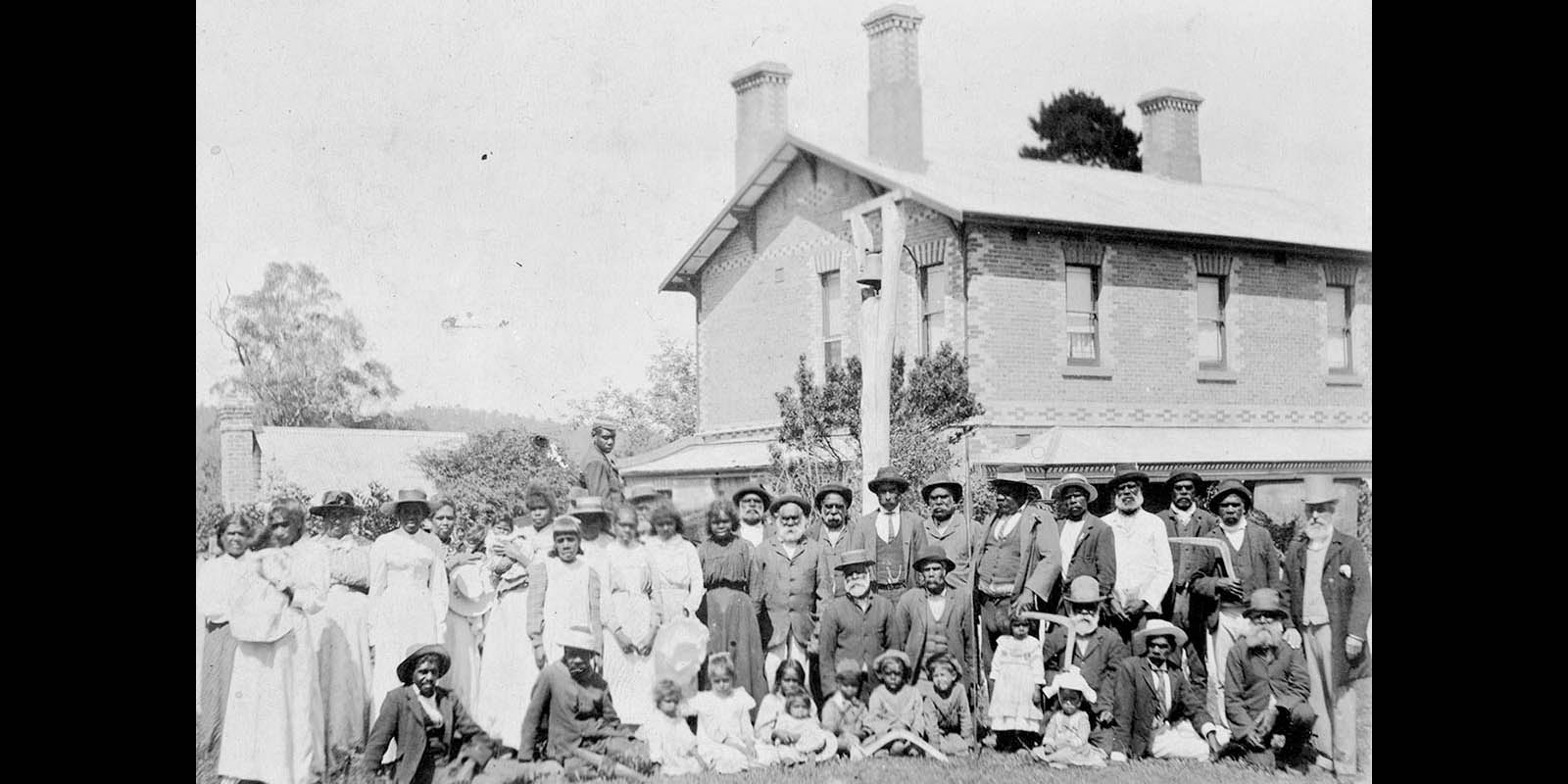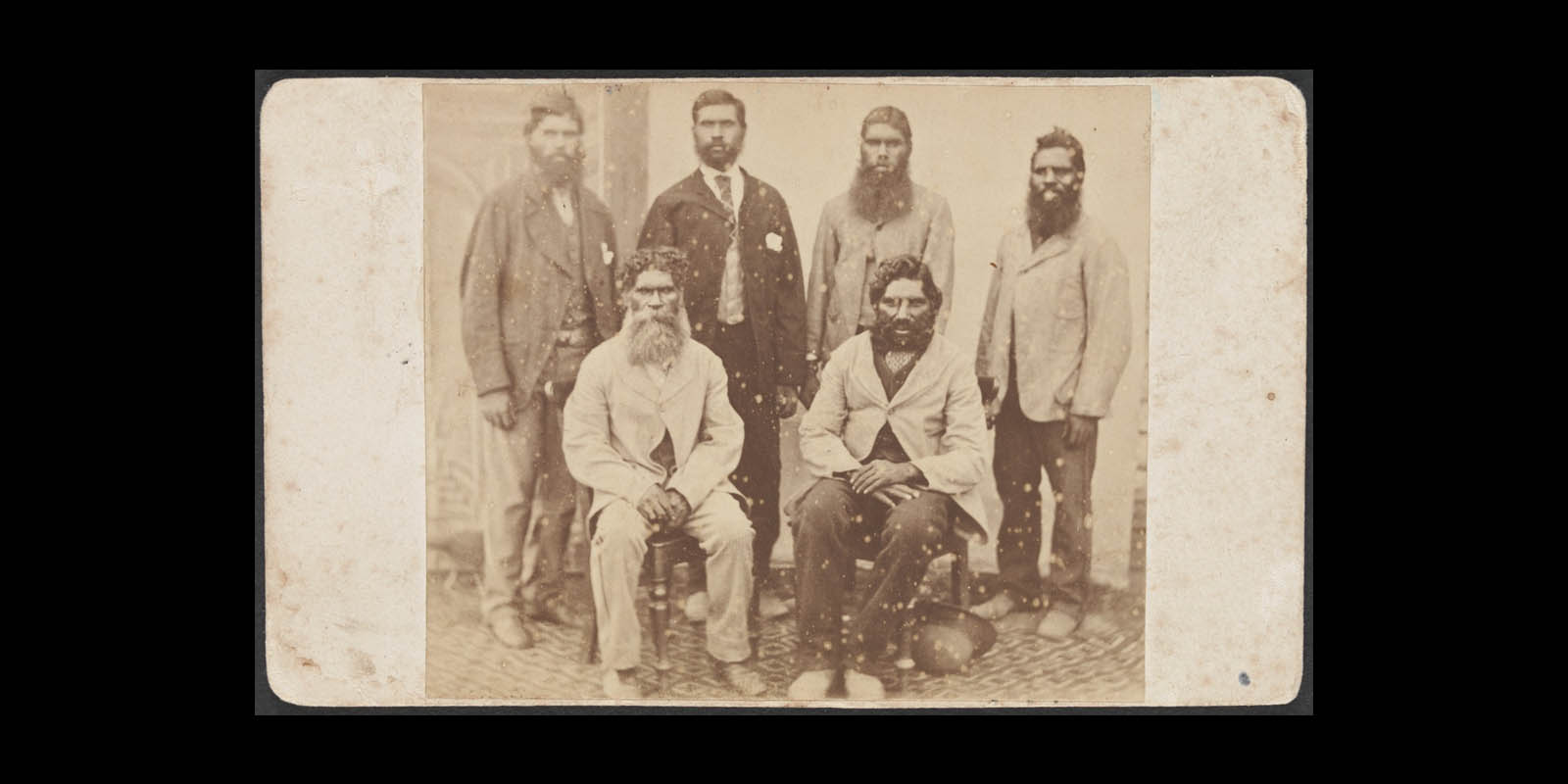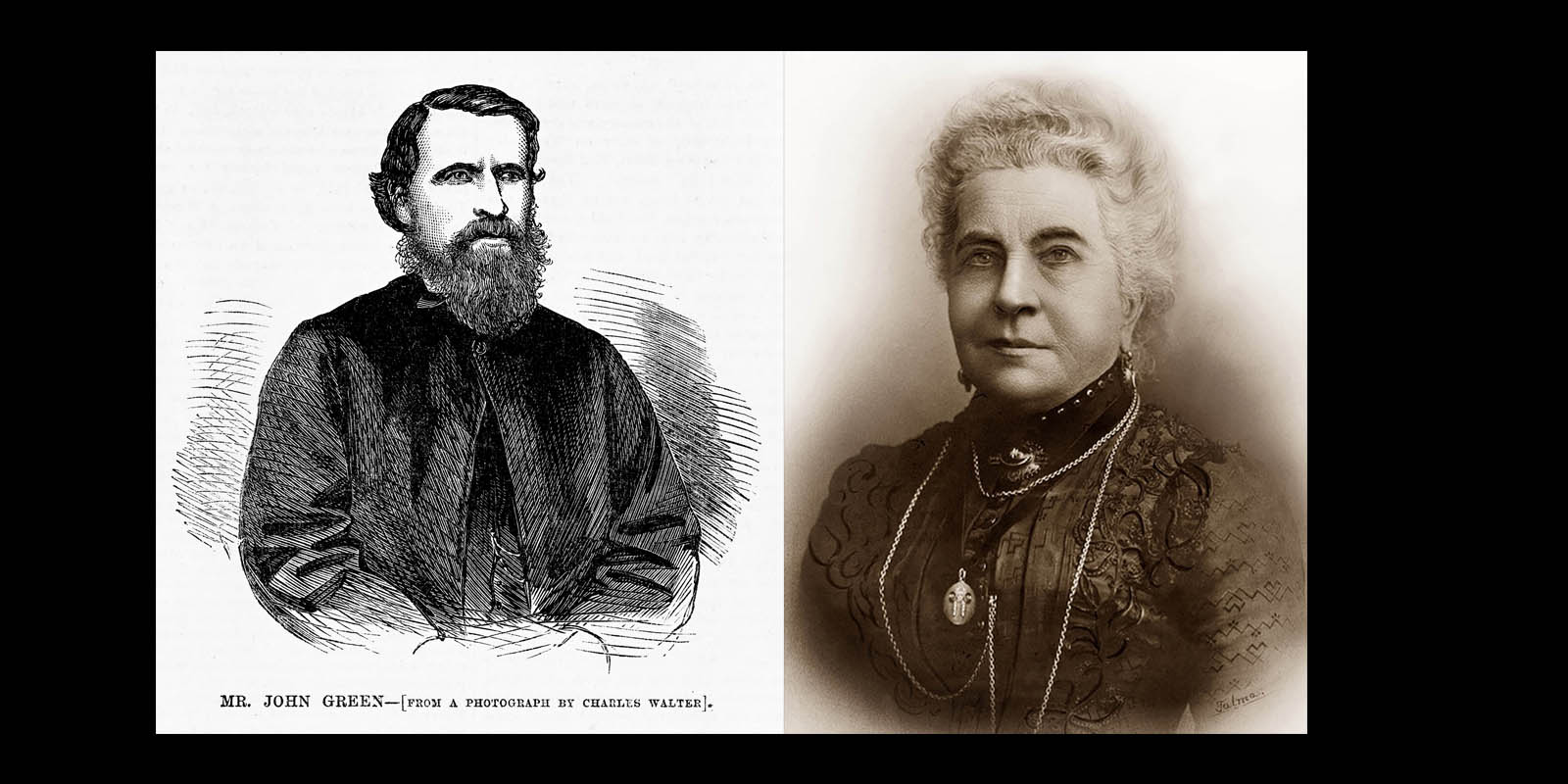The Parliamentary Inquiry into Coranderrk was the first time in Victoria that an official commission was created to address Aboriginal people’s calls for self-determination and land.
It was also one of the few times Aboriginal witnesses were called to give evidence on matters concerning their lives. The Inquiry attracted major public and political interest and was reported closely in the media.


William Barak and the Aboriginal community of Coranderrk, National Museum Australia, Coranderrk.
A history of Coranderrk
Coranderrk Aboriginal Station is located on Wurundjeri country. It was established for the people of the Kulin Nation but was home to many other mobs as well. Coranderrk was officially made a reserve in 1863 and quickly became Victoria’s biggest reserve and became a thriving farming community.
Coranderrk was first threatened with closure in 1874, when manager John Green was removed and the Board seized complete control of the Station raising tensions and creating many issues for mob living on Coranderrk. Uncle William Barak, assisted by many other residents including his nephews Uncle Robert Wandin and Uncle Thomas Dunolly organised many petitions and led a large group of people on a walk to Parliament House – recreating a walk he had previously done with his cousin, Uncle Wonga, when they had sought permission to establish Coranderrk.
While he was able to prevent the closure of Coranderrk the quality of life on the station deteriorated.
You can read more about the history of Coranderrk here.


Robert Wandin, William Barak, William Parker, Martin Simpson, Jimmy Barker and Peter Hunter (all but Barker and Hunter were witnesses in the Inquiry), State Library Victoria
Coranderrk threatened for a second time
In 1881 Coranderrk was being threatened with closure for a second time. Uncle William Barak, gathered 22 men for a 60km journey from Coranderrk to Parliament House. This was now his third time completing this trek and the aim was to again, protect Coranderrk and to have former manager John Green, who was a strong ally to mob, reinstated as manager. They also had non-indigenous allies such as Anne Fraser Bon, a philanthropist who supported mob in their fight against the Board which helped make the campaign harder to ignore.
Once they arrived at Parliament House they met with Chief-Secretary Graham Berry, who personally agreed with their requests, but did not believe Parliament would. As a result, Berry appointed a Board of Inquiry to investigate the conditions and management of Coranderrk and decide whether the station would remain open.
For those who called Coranderrk their home, this inquiry was of huge importance – this was their last chance to ensure that they could stay at their home and protect their culture. Losing Coranderrk would mean moving to unfamiliar Country and the effects of this would be devastating.


John Green (Source: State Library Victoria) & Anne Fraser Bon (Source: National Museum Australia).
The 1881 Inquiry
The inquiry was officially titled ‘The Board Appointed to Enquire into, and Report upon, the Present Condition and Management of the Coranderrk Station’. The inquiry lasted 2 and a half months and consisted of nine commissioners, one of whom was Anne Fraser Bon. 12 hearings were held (two of these took place at Coranderrk) where they examined a total of 69 witnesses which included both Aboriginal and non-Aboriginal people.
Unfortunately, it was not a fair playing field, with the conservative commissioners preferring the statements of white witnesses and those not associated with mob to begin with. The Aboriginal witnesses gave evidence and delivered their testimonies with consistency, composure and dignity. There were some accusations that they were being influenced by outsiders and that they were motivated by a desire for more rations and welfare, however they presented a united front and stood firm on their demands for self-determination.
"We want the Board and the Inspector, Captain Page, to be no longer over us. We want only one man here, and that is Mr. John Green, and the station to be under the Chief Secretary; then we will show the country that the station could self-support itself" - Uncle William Barak
The Inquiry report was published in 1882. Following its recommendations, Coranderrk was made a permanent reserve. For the time being the hard work to protect Coranderrk had paid off.
You can read the Report and Minutes of Evidence below. Please be aware that some of the testimonies can be upsetting to read especially for mob whose family are from Coranderrk. Please read with caution.
Sources
- Minutes of Evidence, The Coranderrk Inquiry
- Coranderrk Aboriginal Station Report
-
1882 Coranderrk Aboriginal Station Report
Please be aware that some of the testimonies can be upsetting to read especially for mob whose family are from Coranderrk. Please proceed with caution.Download
